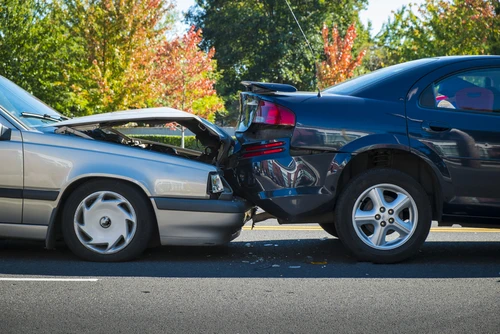Will My Insurance Go Up If Someone Rear-Ends Me?

Rear-end car crashes are commonly thought to be the fault of the car that collides with the vehicle in front of it. However, this is not always the case. When you are rear-ended by another car, you may wonder how your insurance rates will be affected. Usually, car crashes that are not your fault do not raise your rates. Your premiums only raise if you are the at-fault driver, in which case they can raise quite a bit. A study by researchers in 2015 showed that at-fault drivers’ insurance rates rose an average of 41% after a single claim worth more than $2,000. To understand how your specific premiums may be affected by a rear-end car collision, it is best to consult with an experienced car accident lawyer who can read through the fine print of your policy.
Dallas Car Accident Lawyers has worked with a multitude of clients in the past to help ensure that justice is served. Our attorneys can help you gather evidence of the opposing driver’s fault in order to show that the accident was not your responsibility and you should not experience a rise in insurance premiums. If you need to file a personal injury claim to recoup the value of the damages you suffer as a result of your car crash, Dallas Car Accident Lawyers can take the lead on your case so that you and your family can focus on less stressful matters.
Factors That Affect My Premium Rates
Different insurance companies calculate clients’ premium rates in different ways, so you should speak with a knowledgeable rear-end car accident lawyer for details on your policy. Still, many factors are similarly considered by most insurance companies, giving you a rough idea of how your policy’s premiums are calculated. For instance, Geico and other big insurance giants gauge the following items to determine their clients’ rates.
My Risk Profile
Demographic information like your age, gender, and other data can put you in a statistical category of increased risk. For example, teen drivers are considered an at-risk group, so you may pay higher premiums for teenagers on your insurance policy.
My Driving Record
Your past driving experience is also a factor in determining your policy premiums. If you are responsible for several wrecks in the past, your rates will be higher than someone who has never been in an accident before.
My Claims Values
Not all car accidents increase your premiums by an equal amount. Usually, higher payouts from claims against your insurance will result in greater increases to your premiums. In other words, the more damage you are responsible for, the more your rates will go up.
Fault in My Rear-End Car Accident
If you are not at fault for the wreck, then your insurance rates should not increase. But responsibility for a rear-end car crash is not always cut-and-dry. Most cases are usually found to be the fault of the car that collides with the backside of the other vehicle, as drivers are supposed to keep a safe distance between them and the car in front of them. Other at-fault parties are possible, though, such as the following.
Manufacturers
In some situations, a car accident could be caused by a faulty part. Brakes failing to work properly, lights malfunctioning, and other issues can lead to a serious collision. These cases may turn into product liability claims against the manufacturer, but such claims are difficult to navigate successfully and require help from skilled Dallas car accident attorneys.
Government Entities
Sometimes, the driver who rear-ends you is a government worker acting within the scope of their occupation. For example, municipal dump truck drivers are government workers who could be responsible for your accident. In these situations, and when roads are inherently dangerous or poorly maintained, the government may be the entity to blame for your rear-end car accident. Liability claims against the state are complex and should be approached with assistance from a highly experienced rear-end car crash lawyer.
The Importance of Showing Fault
In addition to ensuring that your insurance rates do not increase, showing the fault of the opposing party in a rear-end car wreck is crucial because it can affect your ability to get compensation for any injuries you suffer. Texas courts use proportionate responsibility to determine the value of compensation packages in car accident claims. This means that any percentage of blame attributed to you will reduce your compensation by an equal percentage.
You can increase your potential recovery and reduce or eliminate any rise in insurance premiums by using the following forms of evidence.
- Crash reports
- Cell phone records
- Eyewitness testimony
- Photos of the accident scene
- Traffic camera footage of the wreck
I Can Speak to Skilled Attorneys for FREE
Dallas Car Accident Lawyers offers clients a FREE consultation to discuss the details of your crash. We also do not collect a fee unless we win you a compensation in your case. If you are injured in a rear-end car wreck, get in touch with us through our contact page or by calling (469) 998-4069.
